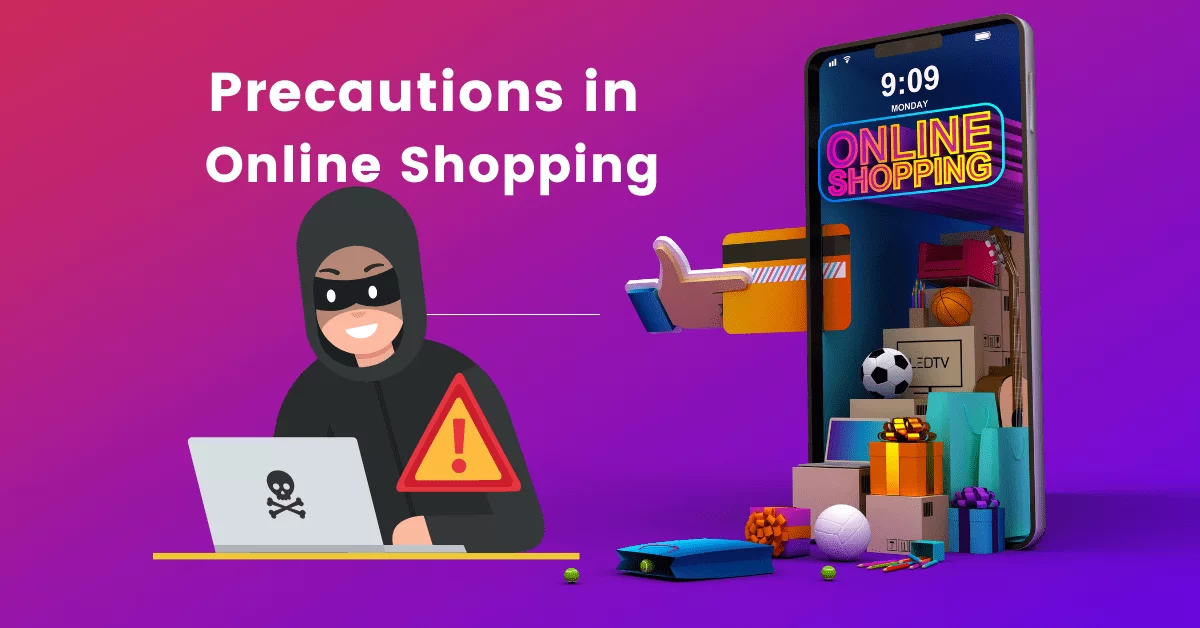With the rise of e-commerce, online shopping has become a popular and convenient way for people to purchase goods and services. However, it is important to take precautions for online shopping to protect yourself from potential risks. By taking precautions for online shopping, you can enjoy the convenience of e-commerce without compromising your personal information.
Since the corona’s arrival, online shopping has increased; if you ever shop from an online store, follow the instructions carefully to avoid problems later. This guide is written from a hacking perspective and is not a product or seller endorsement. Shopping online refers to the act of purchasing products or services through an internet-based platform such as an e-commerce website or a mobile application.
- A strong password has always been my first piece of advice, with at least 13 characters, and mixing lowercase, uppercase, numbers, and symbols.
- Always type the address to visit the shopping site, and only click on a link in an email or WhatsApp message if you know you are at the correct address.
- Incredibly cheap product websites are often created just to steal credit cards or your information, like a new $500 laptop for $50. Stay away from such fake shopping sites.
- Never use mobile on public Wi-Fi but if you have to use any free VPN, public Wi-Fi is often home to hackers who can read your data. By the way, nowadays every site opens only with HTTPS but still using VPN is okay.
- Do not store your credit or debit card on the online shopping site, check off the option. Shopping sites are a favorite target for hackers and the most popular credit cards out there, with 90 percent of people’s cards stolen from shopping sites.
- Complete the purchase with PayPal, Google Pay, Easypiasa, EasyPay, JazzCash, or Cash on Delivery if possible.
- If using a credit card is a must, keep a separate card like mine for online shopping and keep track of its transactions, most companies send you a message on every transaction.
- Keep a record of your purchase and payment history and compare it with monthly reports. If there is anything wrong, notify the credit card company or bank immediately of the transaction. If not, your money will be refunded. I haven’t lost a single rupee to date, money is returned next month without any problem.
- Keep anti-virus active on your computer.
If you follow these instructions, you will never have a problem like mine.
Which is a precaution to use when shopping online?
Some common precautions to take when shopping online include using a secure internet connection, avoiding public Wi-Fi networks, making sure the website is secure, using strong passwords, and keeping your software and antivirus up-to-date.
What are the 3 risks you face online?
The risks you need to be aware of are cyberbullying, invasion of privacy and identity theft.
What precautions one could take while going online?
Use strong passwords, Enable two-factor authentication, Update your software, Use antivirus software, Use a VPN, Be cautious with links, Use secure websites, Protect your privacy, Use social media safely, Educate yourself.
Use strong passwords: Use unique, complex, and long passwords for all your online accounts. You can use a password manager to generate and store your passwords securely.
Enable two-factor authentication: Enable two-factor authentication (2FA) wherever possible to add an extra layer of security to your accounts.
Update your software: Keep your operating system, web browser, and other software up to date with the latest security updates to ensure that vulnerabilities are patched.
Use antivirus software: Install reputable antivirus software on your devices to protect against malware and viruses.
Use a VPN: Use a Virtual Private Network (VPN) to encrypt your internet connection and protect your online activity from prying eyes.
Be cautious with links: Avoid clicking on suspicious links or downloading attachments from unknown sources.
Use secure websites: Use secure websites (https://) for online transactions and avoid entering personal information on unsecured websites.
Protect your privacy: Be cautious about sharing personal information online and consider using a pseudonym or alternate email address when signing up for online services.
Use social media safely: Be careful about what you share on social media and adjust your privacy settings to limit who can see your posts.
Educate yourself: Stay informed about the latest online threats and educate yourself about best practices for online safety.
What are 5 ways to be safe online?
Use strong and unique passwords, Enable two-factor authentication, Logout from services, Use secure websites, , Educate yourself, Beware phishing attacks.
Why is it important to take precautions when shopping online?
Online shopping involves sharing sensitive personal and financial information, which can make you vulnerable to fraud or identity theft. Taking precautions can help protect you and your personal information.


